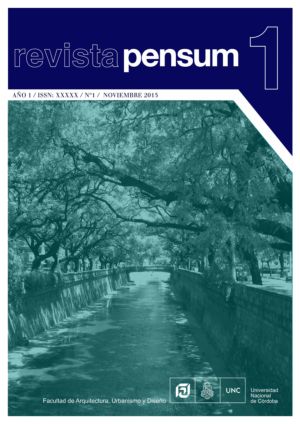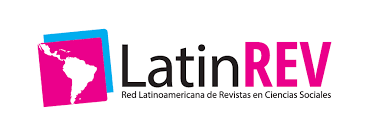ENVIRONMENTAL SUSTAINABILITY AND MANAGEMENT Emerging trends in urban territorial processes
DOI:
https://doi.org/10.59047/2469.0724.v1.n1.12745Keywords:
Sustainability, Territory, Urban development, Environmental management.Abstract
This work synthesizes the main themes of a Master’s Degree dissertation on environmental management and urban development —GADU— (Ávila, 2006) that deals with the emerging environmental issues in current urban territorial processes. It builds up a set of management guidelines from the perspective of environmental rationality and sustainable development. The proposed methodology builds on the understanding of environmental reality by using descriptions, interpretations and assessments, with different stages for tackling a local environmental problem. The project redefined some of its conceptual and methodological resources and identified the relations between territory and environment, which increased the operational capacity for case study. The proposal is being transferred to some towns in Valle de Punilla —a metropolitan region of the city of Cordoba, Argentina. An environmental transformation is taking place in this region, guided by the prevailing socioeconomic forces that jeopardize pre-existing natural and cultural heritage. The work closes with a preliminary local agenda for the environmental management of urban and territorial development. From an environmental communitybased vision, the proposal includes priority goals and actions for achieving sustainable development.References
AVILA, Víctor Daniel. (2006). Ambiente, Territorio y Sustentabilidad. Tendencias ambientales emergentes. La gestión ambiental como instrumento para el desarrollo local. Caso de Estudio: la región ambiental de los poblados del sur del Valle de Punilla. Córdoba: Ed. Imprenta Ingreso.
BORJA, Jordi, y Manuel CASTELLS. (2004). Local y global. La gestión de las ciudades en la era de la información. Madrid: Taurus.
BOZZANO, Horacio. (2004). Territorios reales, territorios pensados, territorios posibles. Aportes para una teoría territorial del ambiente. Buenos Aires: Espacio Editorial.
BRAILOVSKY, Antonio, y Dina FOGUELMAN. (2004). Memoria Verde: historia ecológica de la Argentina. Buenos Aires: Debolsillo-Sudamericana.
FERNÁNDEZ, Roberto. (1998). La Ciudad Verde. Manual de gestión ambiental urbana. Mar del Plata: Centro de Investigaciones Ambientales, Facultad de Arquitectura, Urbanismo y Diseño, Universidad Nacional de Mar del Plata.
FERNÁNDEZ, Roberto. (1999). Ciudad: la Cuestión Ambiental. Modos alternativos de gestión del hábitat urbano, en Teoría y Metodología de la Gestión Ambiental Urbana, módulo Maestría en Gestión Ambiental del Desarrollo Urbano, Facultad de Arquitectura, Urbanismo y Diseño, Universidad Nacional de Córdoba.
FERNÁNDEZ, Roberto. (2001). Derivas. Arquitectura en la cultura de la posurbanidad. Santa Fe: Universidad Nacional del Litoral.
GUIMARAES, Roberto. (1998). Aterrizando una cometa: indicadores territoriales de sustentabilidad, en Guimaraes, R., Fundamentos Socio-económicos de la Gestión Ambiental Urbana. Córdoba: Facultad de Arquitectura, Urbanismo y Diseño, Universidad Nacional de Córdoba.
HALAC, Raúl, Enrique Astini y otros. (2000). Programa Internacional Manual Agenda 21. Córdoba: Maestría GADU, Facultad de Arquitectura, Urbanismo y Diseño, Universidad Nacional de Córdoba.
LEFF, Enrique. (1994). Sociología y ambiente: Formación socioeconómica, racionalidad ambiental y transformaciones del conocimiento, en Leff, E. (comp.) Ciencias sociales y formación ambiental, Barcelona: Gedisa.
LEFF, Enrique. (1998). Saber ambiental: sustentabilidad, racionalidad, complejidad, poder. México: Siglo XXI Editores.
LEFF, Enrique. (1999). Pensar la Complejidad Ambiental, en Módulo de la Maestría GADU. Córdoba: Facultad de Arquitectura, Urbanismo y Diseño, Universidad Nacional de Córdoba.
SANTOS, Milton. (1996). Metamorfosis del espacio habitado, traducción al castellano por Gloria Vargas López. Barcelona: Oikos-tau.
Downloads
Published
Issue
Section
License
Authors who publish in this journal agree to the following terms:
a. Authors retain copyright and guarantee to the journal the right to be the first publication of the work as well as licensed under a Creative Commons Attribution-ShareAlike 4 license.
b. Authors may separately establish additional agreements for non-exclusive distribution of the version of the work published in the journal (e.g., placing it in an institutional repository or publishing it in a book), with an acknowledgement of its initial publication in this journal.
c. Authors are permitted and encouraged to disseminate their work electronically (e.g., in institutional repositories or on their own website) before and during the submission process, as this may result in productive exchanges, as well as earlier and greater citation of published work (See The Effect of Open Access).
d. 4.0 International Creative Commons Attribution-ShareAlike 4.0 License.












